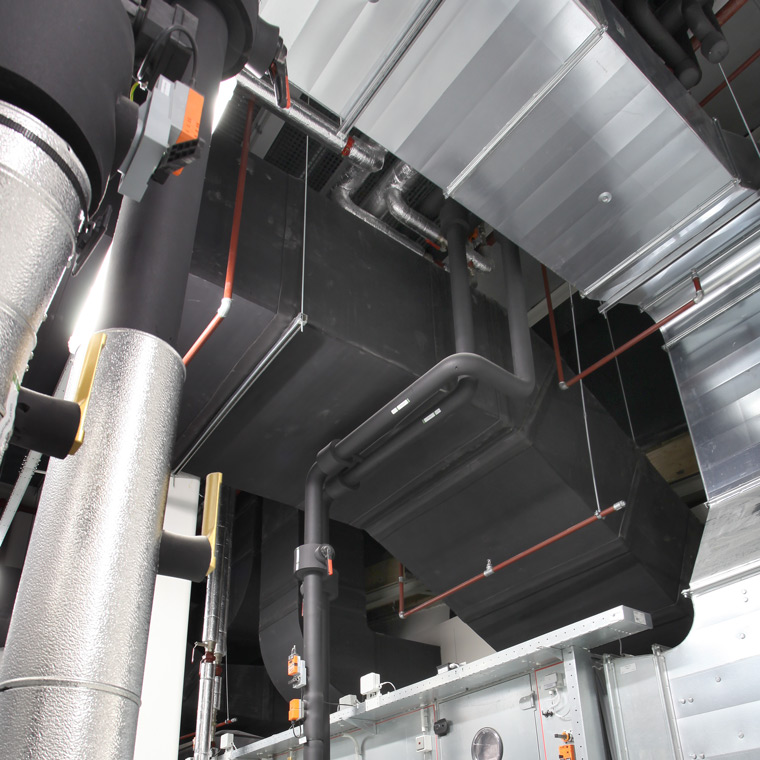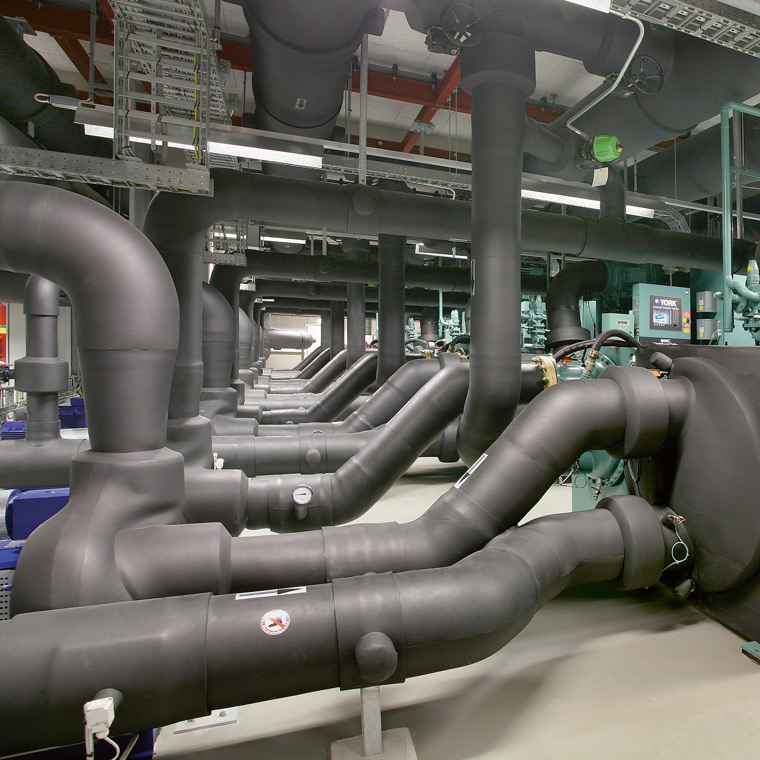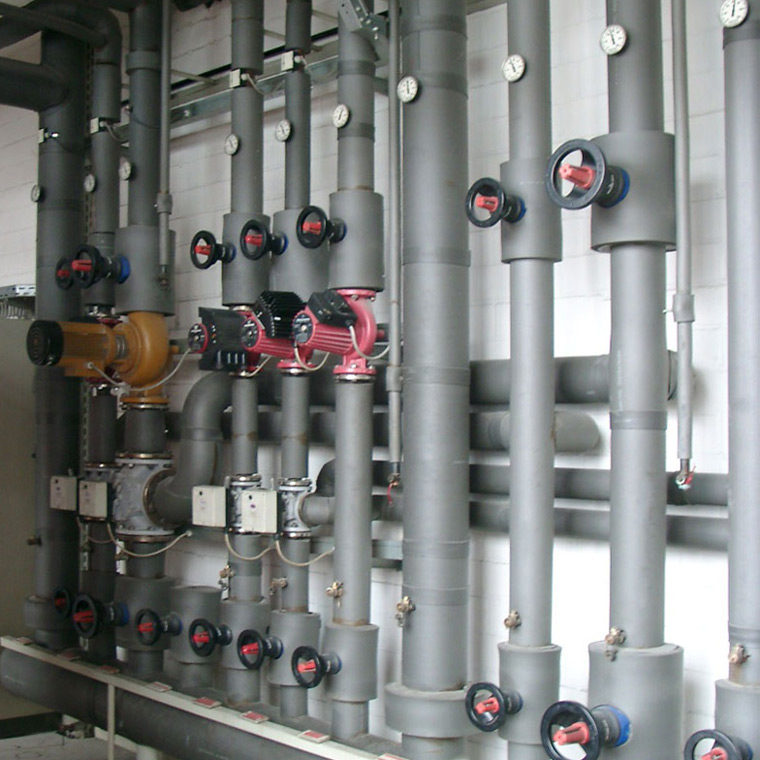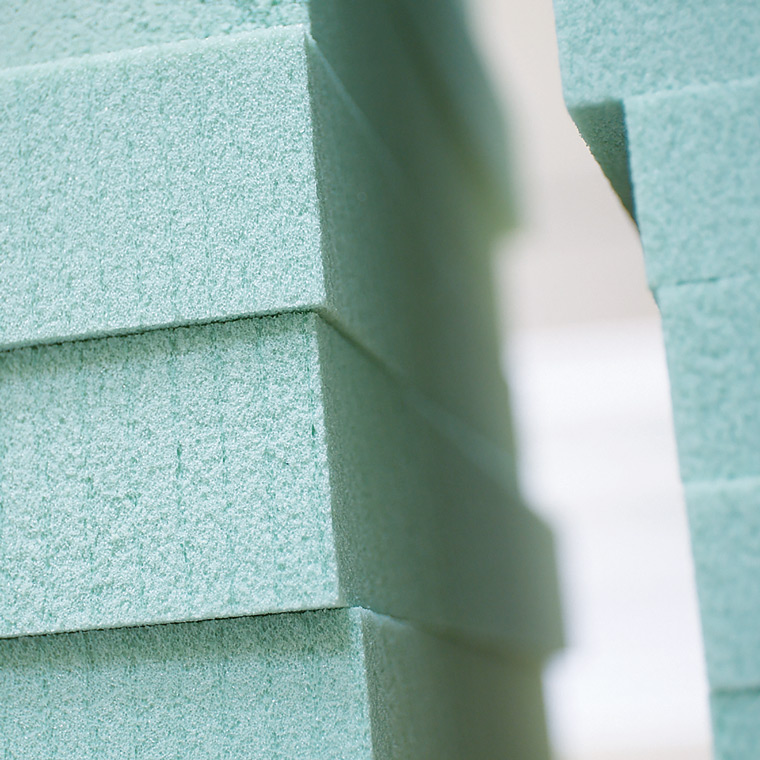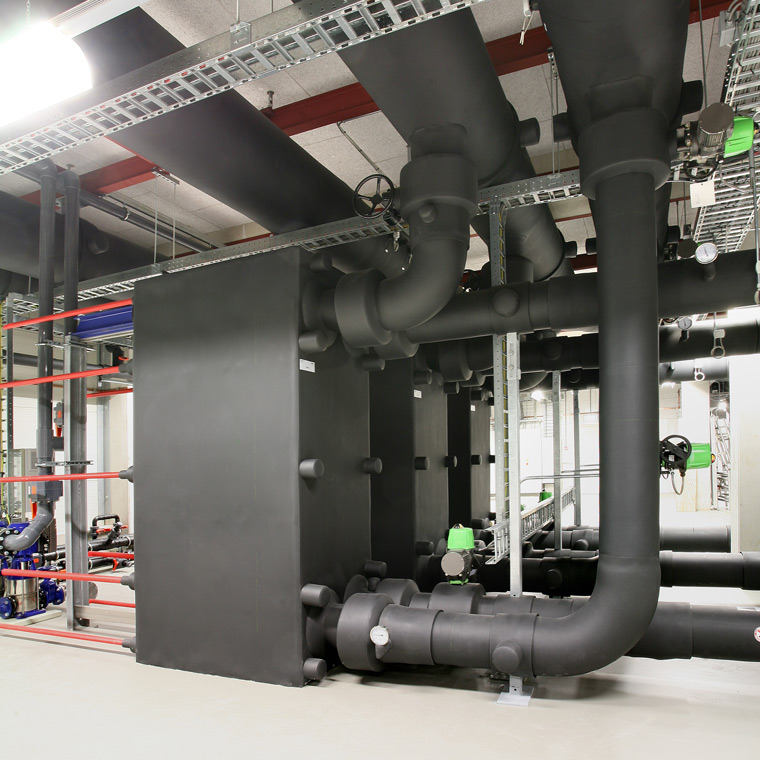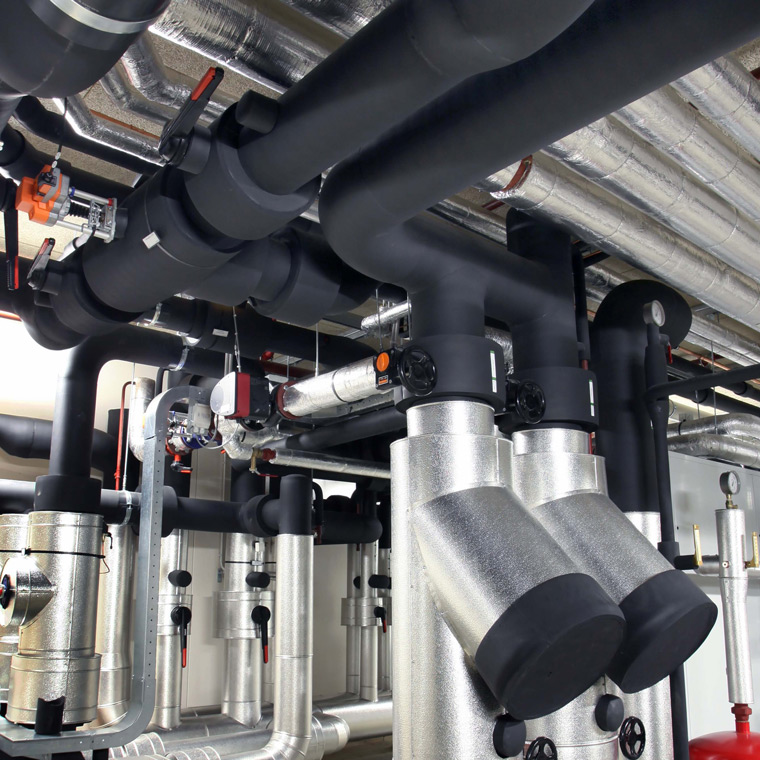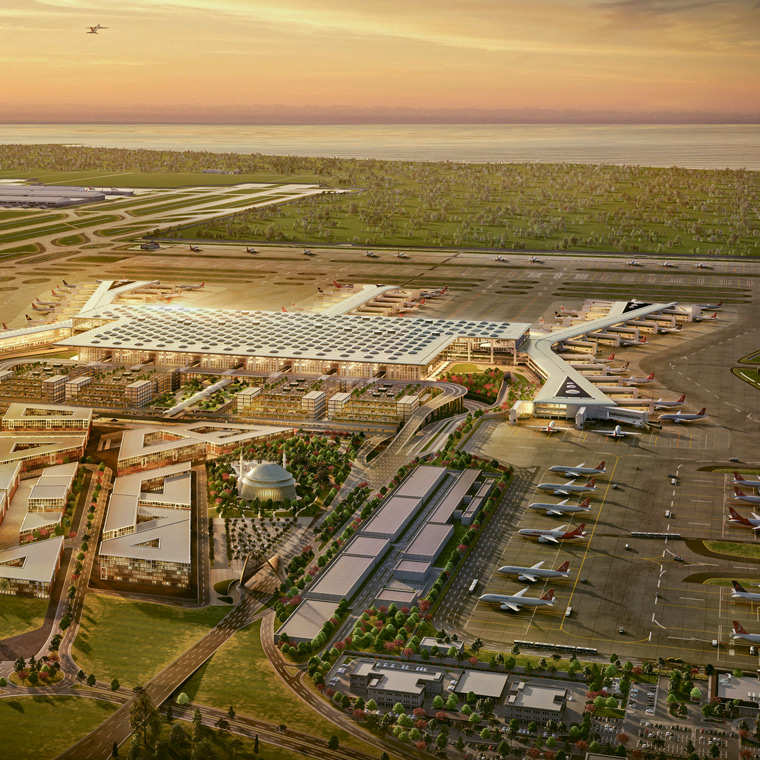Infrastructure
Longevity and durability for large infrastructure projects
Optimised resilience of structural and mechanical applications
Public infrastructure encompasses an array of critical systems such as schools, libraries, museums, courts, government buildings, highways, bridges, airports, and railway systems. With construction schedules driven by the seasons, engineers and planners often face aggressive time constraints. High-performing elastomeric foam and polyethylene-based materials like our ArmaFlex® and ArmaComp® products help address this challenge head-on by offering a wide range of accessible and versatile applications for both mechanical insulation and component foam projects. Whether the challenge is a historic building renovation or a new construction, the right insulation system is key to achieving goals in LEED® certification, best-in-class noise and thermal control, and lower overall utility and maintenance costs. From ensuring condensation control, energy efficiency, indoor air quality, acoustic comfort, or fire safety in HVAC applications of transportation hubs or public buildings to providing highly resilient component solutions for large structural projects, our portfolio of products offers approved solutions to meet strict requirements.
Enhance fire safety in public spaces
Incorporating fire resilience into the planning of public infrastructure is key to maintaining safety. Specific regulations on passive fire protection and the fire behaviour of building materials may vary depending on the region and the specific project. Nonetheless, fire protection standards are defined in national building codes which help safeguard life and protect the public welfare by regulating design and construction materials in public buildings. Our low-smoke insulation products achieve the highest fire classification for organic materials and minimise the generation of smoke in case of a fire. Our firestop products effectively seal off pipe penetrations within walls and floors, containing fire and curtailing the spread of smoke. Opting for advanced fire-safety solutions enables specifiers to significantly contribute to overall fire safety within public infrastructures.
Comply with a growing body of regulations
In today's world of construction, LEED®, BREEAM®, and DGNB are the leading certifications that highlight the importance of energy efficiency, indoor air quality, and optimised resource use. To align with these certifications, specifiers require Environmental Product Declarations (EPD) and seek materials that contribute to the different programs. As an industry pioneer, we offer compliance product cards that help you understand the benefits of our products and how they align with various programs. These cards provide a detailed breakdown of our product's contribution to these programs. Our dedicated solutions are designed to support you throughout the process, ensuring energy-efficient and reliable performance all year round.
Increase building efficiency with PET-based composite materials
The use of modern composite materials is a noticeably growing trend in architectural applications. Amidst a rising demand, fibre-reinforced polymer (FRP) composite structures consistently outperform conventional materials across parameters, such as structural integrity, material efficiency, sustainability and maintenance costs. Opting for polymeric foam core materials such as PVC, PUR/PIR, and XPS is a strategic choice that offers a higher degree of freedom in process versatility while contributing to improved safety and comfort. Integrated into exterior cladding panels, decorative façade elements, roof structures, modular houses, or bridges, PET-based composite structures empower specifiers to achieve streamlined installation processes while boosting the building’s energy efficiency.
Protect intricate pipework to maintain pipe temperatures
In public buildings, such as airports or schools, guaranteeing a safe water supply is a key parameter of the planning process. Insulation of a building’s heating and plumbing infrastructure prevents inadmissible temperature fluctuations, as the water traverses the complex network of pipes. Specialised solutions that are equipped with antimicrobial properties minimise the risk of bacterial growth on the insulation. By choosing the right insulation, engineers and planners can help to uphold the health and safety standards of our communities.





